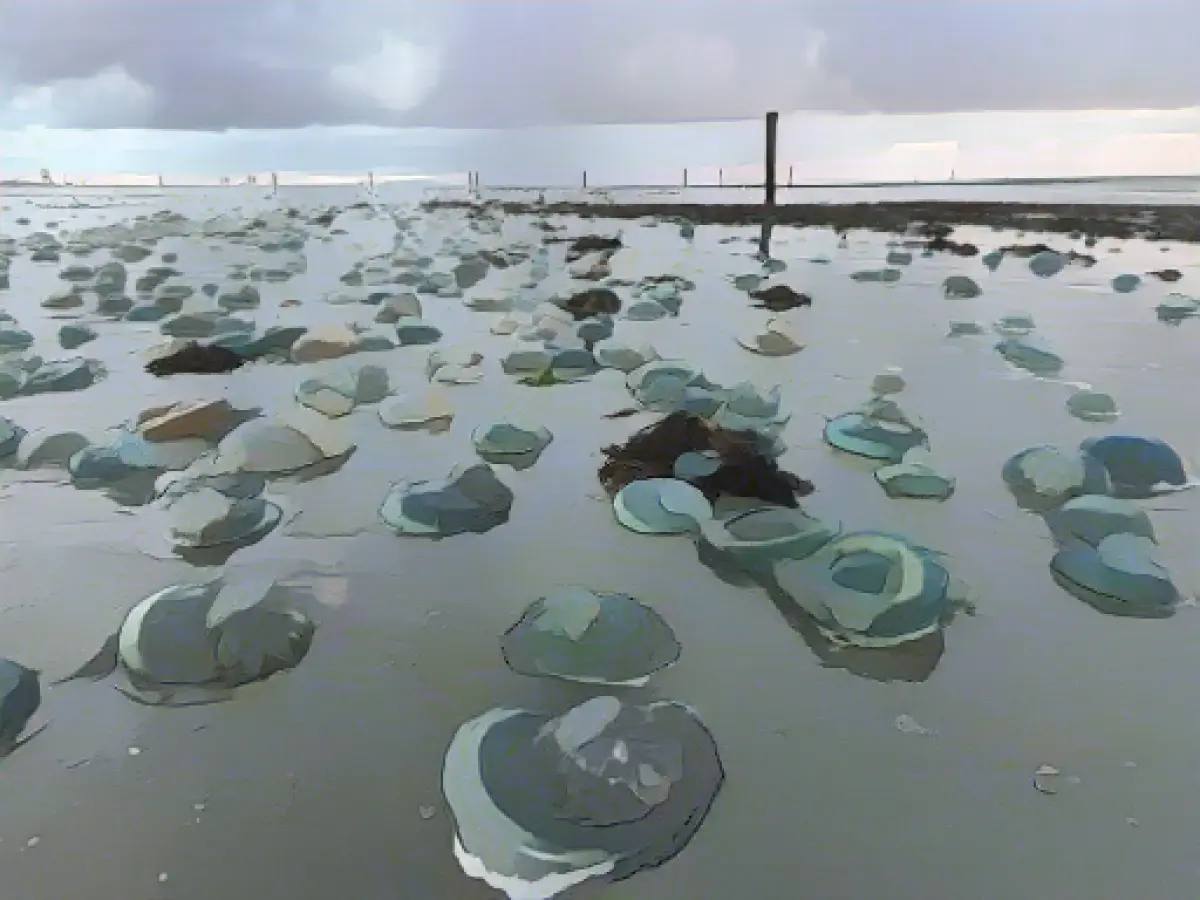Masses of jellyfish washed up on the west beach of Norderney
Hundreds of shimmering blue jellyfish have washed up on the west beach of the East Frisian island of Norderney and are currently causing quite a stir. The lifeless animals have been washed up on the beach by the current over the past few days. "We have jellyfish on the North Sea coast from time to time," said Berit Finkennest, biological oceanographer at the Wadden Sea National Park House Watt Welten on Norderney on Monday. "What's unusual is how many of them we're seeing at the moment." According to the expert, there are several hundred. Several media outlets had initially reported this.
According to the National Park House, the washed-up jellyfish are so-called root-mouth jellyfish (Rhizostoma octopus), whose umbrella can have a diameter of up to 60 centimetres. According to the Wadden Sea Protection Station, the breeding area of this jellyfish species is in the Atlantic Ocean and the English Channel. The animals only reach the North Sea with the current.
This is mainly the case in late summer or fall, now in November the occurrence in this quantity is rather unusual, said Finkennest. The experts assume that the wind has driven the animals on the surface of the water towards the coast and thus to Norderney over the past few days. It was initially unclear to what extent other North Sea islands were also experiencing higher numbers.
Finkennest said that it was not clear what could be causing the higher jellyfish numbers. There are several possible reasons. It is being discussed, for example, that jellyfish populations could benefit from the warming of the oceans due to climate change - there are also indications that the cnidarians could find additional habitat on the foundations of offshore wind turbines in their sedentary stage as so-called polyps. There is still a lack of concrete data on jellyfish occurrences over longer periods of time, said Finkennest.
As the jellyfish decompose relatively quickly, you have to be in the right place at the right time to see the spectacle, said the oceanographer. Some visitors to the island had already expressed concern about the many blue jellyfish. But there is no danger to humans, said the expert. "A root mouth jellyfish has no stinging threads. That means there is nothing that could sting."
Just a few days ago, a stranded, unseaworthy sailing boat on the beach of Norderney attracted numerous onlookers. The boat has since been removed.
The unusual number of jellyfish on Norderney's beach could be a result of climate change, allowing jellyfish populations to thrive and find additional habitats near offshore wind turbines. Furthermore, the rapid decomposition of jellyfish means that those who wish to witness this natural phenomenon must visit at the right time.
The environment and nature have played a significant role in the mass of jellyfish that have washed up on the west beach of Norderney, with several hundred animals being affected. Animals like seabirds and marine life may also be influenced by these changes in their environment.
Source: www.dpa.com








